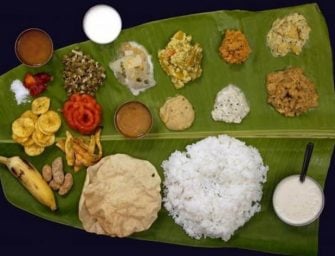Born: December 25, 1924
Place of Birth: Gwalior, Madhya Pradesh
Death: August 16, 2018
Place of Death: New Delhi
Parents: Krishna Devi, Krishna Bihari Vajpayee
Education: DAV College, Kanpur
Children: Namita Bhattacharya
Introduction
Atal Bihari Vajpayee was a former Prime Minister of India. He was in the office thrice; first for 13 days in 1996, then for 13 months in 1998–1999 and thereafter from 1999 to 2004 of India thrice, in 1996, 1998 and 1999. He began his political career in the parliament as an MP of Bharatiya Jana Sangh and later worked as the Minister of External Affairs in the Janata government under Morarji Desai. When the Janata government collapsed, he along with the other members of Bharatiya Jana Sangh formed a new political party called Bharatiya Janata Party (BJP). In the next decade and half, he was instrumental in the expansion of BJP all over India. As a result, BJP emerged as the single largest party in the 1996, 1998 and 1999 general election and he became the Prime Minister. Over the course of his career, he was elected 10 times to the Lok Sabha ten times and twice to the Rajya Sabha.
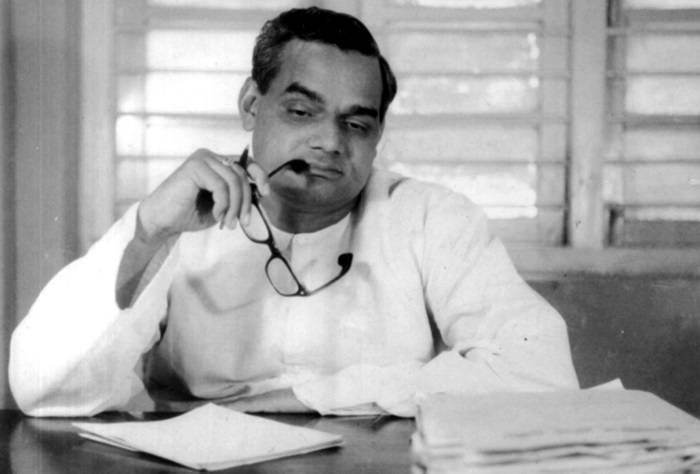
Image Credit : https://www.awaaznation.com/social-issues/13-number-unlucky-atal-bjp-party/
Early Life
Atal Bihari Vajpayee was born on 25 December 1924 in Gwalior to Krishna Devi and Krishna Bihari Vajpayee. His father was a poet and school teacher. Atal Bihari Vajpayee completed his schooling from Saraswati Shishu Mandir in Gwalior. Thereafter, he completed his graduation from Gwalior’s Victoria College. He completed his postgraduation with MA Political Science from DAV College in Kanpur.
An activist at heart, he joined the youth wing of Arya Samaj called Arya Kumar Sabha and become its general secretary in 1944. He also participated in the Quit India Movement along with his brother Prem in 1942.
Atal Bihari Vajpayee had joined the Rashtriya Swayamsevak Sangh (RSS) as a swayamsevak in 1939. He enrolled in the Officers’ Training Camp from 1940 to 1944 and became a full-time member, also called a pracharak, in 1947. In the meanwhile, he enrolled to study law but gave it up during the turmoil caused by the partition of India. He was then sent as a vistarak (probationary pracharak) to Uttar Pradesh where he was employed for various newspapers, including Rashtradharama, Panchjanya, Swadesh, and Veer Arjun.
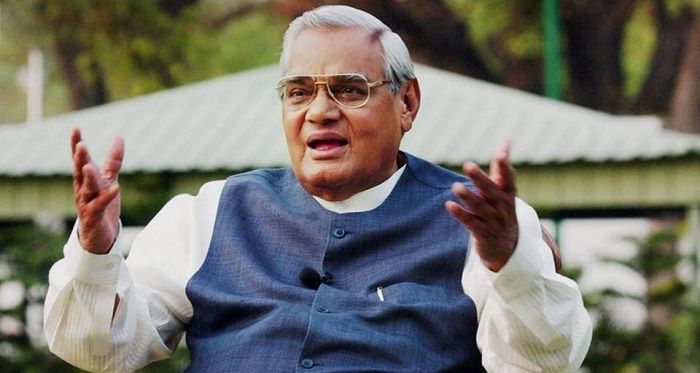
Image Credit : https://www.hindustantimes.com/india-news/atal-bihari-vajpayee-s-condition-improving-aiims/story-S1PwmuCLES4xmf6Y52HI3N.html
Political Career
Vajpayee began his formal political career when he started working for the newly formed political party, Bharatiya Jana Sangh in 1951. He was appointed as a nation secretary of the party for the Northern Region. Over the years, he was frequently seen alongside the party leader Syama Prasad Mukherjee. In 1954, Vajpayee along with Mukherjee went on a fast-unto-death in Kashmir to protest against the perceived discriminatory treatment of the non-Kashmiri Indian visitors to the state. Syama Prasad Mukherjee was arrested and died in the prison during strike.
He was first elected to Lok Sabha in 1957 from Balrampur constituency. He instantly made his mark in parliament by his brilliant oratory and articulation. His oratorical skills won the hearts of many including the then prime minister Jawaharlal Nehru. Vajpayee went on to become the face of the Jana Sangh and became the national president of Jana Sangh, in 1968, after the death of Pandit Deendayal Upadhyaya. He along with other leaders of the party, such as L.K Advani and Bhairon Singh Shekhawat worked tirelessly to expand the party.
During the Emergency enforced by Indira Gandhi in 1975, Vajpayee was arrested and jailed along with other opposition members. When emergency was lifted in 1977, all the opposition parties united together to contest elections against Indira Gandhi led Congress Party. At this time Vajpayee’s party, Bharatiya Jana Sangh, was merged into the newly formed Janata Party, which went on to win the general elections in 1977. He was appointed the Minister of External Affairs in Morarji Desai’s cabinet. The Janata Party government was shortlived and fell in 1980. Vajpayee, along with members from Bharatiya Jana Sangh and the RSS, formed the Bharatiya Janata Party (BJP) in 1980. He became the first president of the BJP.
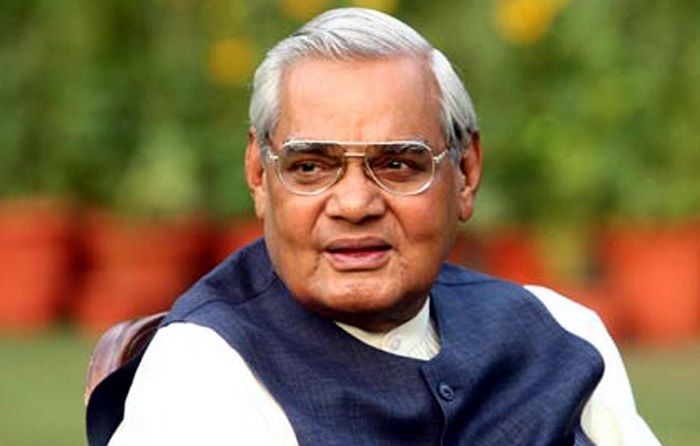
Image Credit : https://indiatribune.com/atal-bihari-vajpayees-name-removed-from-lucknow-voter-list/
Over the course of next 16 years, Vajpayee along with other senior leaders of the party worked tirelessly to strengthen and expand the party. In the late 1980s, BJP also got involved in the Ram Janmabhoomi Mandir movement. As a result of the tireless efforts of its leaders and spread of its ideology, BJP emerged as the single largest party in the 1996 general elections.
As Prime Minister of India
In the aftermath of the 1996 general elections, BJP was invited to form the government. Though BJP had emerged as the single largest party it lacked a clear majority. The party couldn’t gather support from other parties to obtain a majority and Vajpayee had to resign after thirteen days.
In the 1998 general elections, the BJP again emerged as the single largest party and formed a coalition named National Democratic Alliance (NDA) along with other like-minded parties. This strength of this coalition was more than the simple majority required and hence Vajpayee was sworn in as the Prime Minister again. But, this government lasted only 13 months as Jayalalitha’s party AIADMK withdrew support from the government. The government lost the confidence motion in the Lok Sabha by a single vote.
During his 13-month long stint, Atal Bihari Vajpayee government took several path breaking decisions. Indian conducted five nuclear tests in Pokhran in May 1998 and thus became a nuclear weapons state. Vajpayee also advocated peace and friendship with Pakistan by initiating a Delhi-Lahore bus service. The Lahore Declaration aimed for friendship and better relations between India and Pakitsan. The three-month long Kargil War was also fought under Vajpayee’s leadership. The Kargil victory strengthened Vajpayee’s political image.
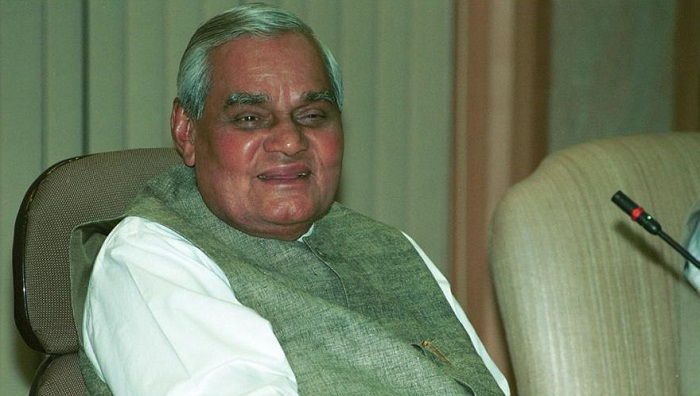
Image Credit : https://www.hindustantimes.com/india-news/pm-modi-visits-aiims-to-enquire-on-atal-bihari-vajpayee-s-health/story-Aymwq96Wu20iYkMcd5HpqO.html
In the general elections of 1999, BJP-led NDA won a comfortable majority and Vajpayee took oath as the Prime Minister on October 13, 1999. In his third term, Vajpayee took many far reaching decision and introduced many economic and infrastructural reforms. He was particularly inclined towards the National Highways Development Project and Pradhan Mantri Gram Sadak Yojana. He launched the Sarva Shiksha Abhiyan in 2001 to help achieve the goal of basic education for all. He was instrumental in developing close relations with the United States. Vajpayee and the U.S. President Bill Clinton signed the Historic Vision Document.
The newly formed government was under pressure from its parent organization, the RSS, to push for the Hindutva agenda. However, since the party depended on coalition support, it wasn’t possible to dictate terms. He was criticized by trade unions for his inclination towards privatization. Vajpayee government was one of the most reform friendly governments in the history of India and was able to privatize several loss making PSUs.
Among many issue surrounding the Vajpayee government, the most strain was caused by the Ayodhya issue. The Vishwa Hindu Parishad wanted to forcibly build a temple at Babri Masjid. This not only suggested complete disregard for law but threatened communal violence. In 2002, Hindu-Muslim riots erupted in Gujarat, which was a BJP-ruled stated. The riots resulted in large scale killings of Muslims and Vajpayee was criticized for his inability to control riots in time.
Buoyed by the success of his party in the assembly elections in Madhya Pradesh, Rajasthan and Chattisgarh, in late 2003, Vajpayee led NDA government advanced general elections by six months. However, BJP-led NDA alliance failed to get a clear majority in the 2004 general elections. Congress formed a coalition with other parties and this coalition was named as United Progressive Alliance (UPA). Manmohan Singh was chosen as leader of this coalition. Vajpayee resigned as Prime Minister and Manmohan Singh became the new Prime Minister of India.
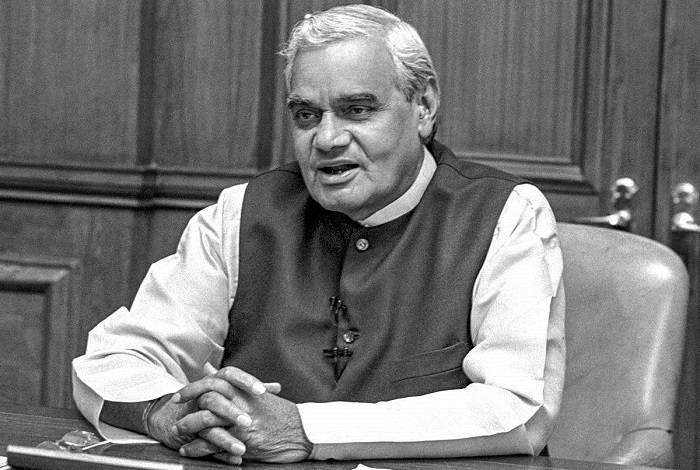
Image Credit : https://m.timesofindia.com/videos/news/how-atal-bihari-vajpayees-golden-voice-has-fallen-silent-due-to-illness/videoshow/64562993.cms
Retirement
Upon his resignation as Prime minister, Atal Bihari Vajpayee decided not to hold the position of the Opposition Leader. However, he remain the chairman of the NDA. In December 2005, he announced his retirement from active politics and announced that he would not contest in next general elections.
Personal Life
Atal Bihari Vajpayee remained a bachelor throughout his life. He has an adopted daughter named Namita Bhattacharya. Vajpayee was fond of Indian classical music and dance. He was also an admirer of poetry and wrote poems himself.
In 2009, he suffered a stroke, which severely impacted his speech and cognitive abilities. In the last few years of his life, he was confined to a wheelchair and did not recognise people. He was also not seen in any public event in the last few years of his life.
Death
He was admitted to hospital on June 11, 2018, in a critical condition. His health kept fluctuating and he remained hospitalised for over two months. He passed away on August 16, 2018, at All India Institute of Medical Sciences (AIIMS), New, Delhi.
Awards
Atal Bihari Vajpayee was honored with India’s highest civilian honor, he Bharat Ratna Award. He was conferred this award on 27 March 2015, by the then President of India, Pranab Mukherjee, at his residence. His birthday, 25th December, was concurrently declared as ‘Good Governance Day’. Some of the other awards with which he was honoured include: Padma Vibhushan (1992), Outstanding Parliamentarian Award (1994) and Lokmanya Tilak Award (1994).

